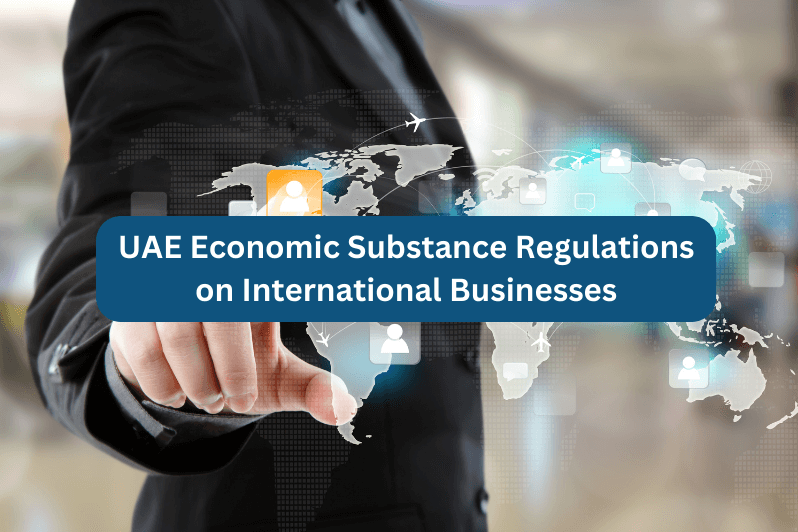The United Arab Emirates (UAE) has been a hub for international business and investment, attracting companies from various sectors due to its strategic location, robust infrastructure, and favorable business environment. In recent years, the UAE has implemented Economic Substance Regulations (ESR) in line with global standards set by the Organization for Economic Co-operation and Development (OECD). These regulations have significant implications for international businesses operating in the UAE, aiming to ensure that companies engaged in certain activities have substantial operations within the country. This article explores the key aspects of the UAE Economic Substance Regulations and their impact on international businesses.
Understanding Economic Substance Regulations
The foundation of Economic Substance Reporting in the UAE lies in Cabinet of Ministers Resolution No. 31 of 2019, with subsequent amendments made by Cabinet Resolution No. (57) of 2020. Regulatory competencies are outlined in Cabinet Decision No. 58/2019, designating specific authorities to administer and enforce the regulations. To assist entities in understanding and implementing the ESR, comprehensive guidance was issued on September 11, 2019 (Ministerial Decision No. 215 of 2019), and further updates were provided on August 19, 2020 (Ministerial Decision No. (100) of 2020).
Scope and Activities
The ESR applies to both onshore and free zone companies, requiring those engaged in specified “Relevant Activities” to maintain a tangible economic presence in the UAE. Relevant Activities include banking, insurance, distribution, and service center management, among others. Entities falling under the regulations must undergo an Economic Substance Test to ensure compliance.
Key Components of Economic Substance Regulations
Relevant Activities
The Economic Substance Regulations (ESR) target entities engaged in specific “relevant activities” to ensure they contribute substantively to the UAE’s economic landscape. These activities encompass a diverse range, from banking, insurance, and fund management to lease financing, headquarters, shipping, holding companies, intellectual property, and distribution and service centers. By focusing on these sectors, the regulations aim to guarantee that businesses integral to the nation’s economic development are physically present and actively operating within the UAE.
Economic Substance Test
For companies falling within the ambit of the ESR, compliance involves successfully navigating the economic substance test. This test necessitates a demonstration of substantial activities conducted within the UAE, emphasizing core income-generating functions. It serves as a yardstick to ensure that entities are not merely registered in the country but actively contribute to and participate in the local economy. This evaluation aims to prevent profit shifting and the creation of entities solely for tax optimization purposes.
Notification and Reporting Requirements
Entities subject to the Economic Substance Regulations are obligated to notify the regulatory authorities about their relevant activities. This involves a transparent disclosure of the nature and scope of their operations within the UAE. Additionally, businesses must file annual reports, providing detailed insights into their compliance with the economic substance test. These reports serve as a tool for regulatory bodies to assess the authenticity of a company’s presence and activities in the country, fostering transparency and accountability in the business environment. Regular reporting ensures that businesses uphold their commitment to contributing meaningfully to the UAE’s economic fabric.
Impact on International Businesses
Operational Changes
International businesses operating in the UAE, particularly those engaged in relevant activities, face the imperative of operational adjustments to adhere to economic substance requirements. This entails not only an augmentation of staff but also an expansion of physical presence and an increase in activities conducted within the country. These modifications signify a commitment to actively contributing to the local economy, meeting the essence of the economic substance regulations.
Risk of Non-Compliance
Non-compliance with economic substance regulations poses significant risks for international businesses. Penalties, sanctions, and the severe consequences of license suspension or withdrawal are potential outcomes. To safeguard against these risks, companies must conduct meticulous assessments of their operations, ensuring alignment with regulatory standards to mitigate any adverse repercussions and maintain their operational continuity in the UAE.
Increased Transparency
The Economic Substance Regulations (ESR) play a pivotal role in fostering increased transparency within business operations. By mandating detailed disclosures about activities, financial performance, and core income-generating functions, the ESR aims to provide stakeholders, regulatory bodies, and the public with a clearer understanding of a company’s contributions and operations within the UAE. This heightened transparency contributes to building trust and accountability in the business environment.
Strategic Considerations
In response to economic substance requirements, businesses must strategically evaluate their corporate structures. This may involve reassessing the necessity and viability of certain entities, activities, or functions within the UAE. A strategic realignment ensures that companies not only comply with regulations but also optimize their operational efficiency and overall business strategies within the evolving regulatory framework.
Global Alignment
The adoption of Economic Substance Regulations aligns the UAE with international standards, reinforcing the commitment to preventing tax avoidance and profit shifting. This alignment positions the country as a responsible and compliant business jurisdiction on the global stage. International businesses operating in the UAE can benefit from this alignment, as it enhances the country’s reputation and assures stakeholders of its commitment to ethical and transparent business practices.
The symbiosis of operational changes, risk mitigation, increased transparency, strategic considerations, and global alignment underscores the transformative impact of Economic Substance Regulations on the business landscape in the UAE. The UAE Economic Substance Regulations represent a significant development in the country’s commitment to international standards of tax transparency and economic substance. While these regulations bring about challenges for international businesses, they also create opportunities for companies to reassess their operations, enhance transparency, and contribute to the overall integrity of the global business environment. As businesses adapt to the new regulatory landscape, collaboration with legal and financial experts is essential to navigate the complexities of compliance and ensure continued success in the dynamic business landscape of the UAE.
Read More: ESR Compliance Requirements in UAE

